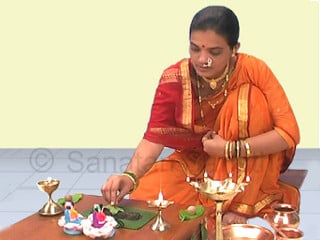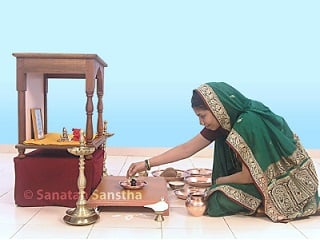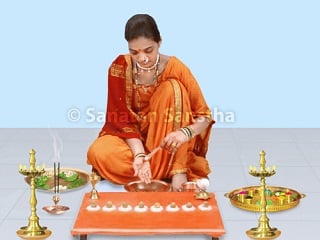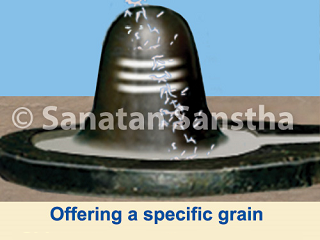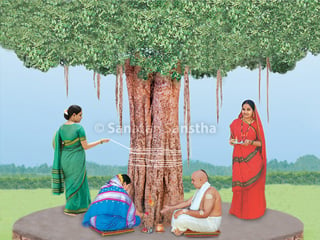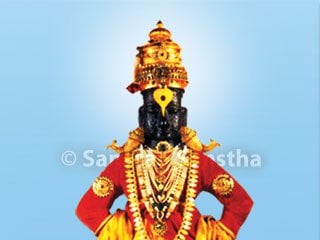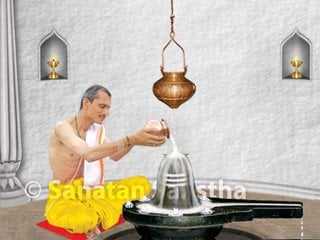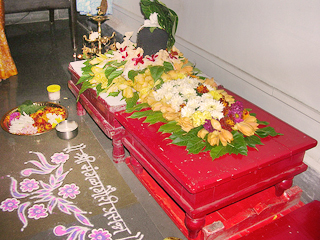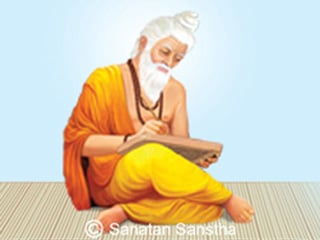The Bharatiya scriptures have advocated the code of conduct depending on place, time and circumstances. The code of conduct advocated by the Veds is very difficult for an average person to adhere to. To overcome this difficulty and to make it convenient for every one to follow the code of conduct and to facilitate their spiritual upliftment, the Purans have recommended vrats.
Bharat has a number of Holy and Religious festivals and traditions. However, most people view and celebrate them merely as age-old practices; they do not pay attention to the underlying science and their deeper meaning. If the underlying science of the Holy and Religious festivals is known, they can be celebrated with added faith.
Bharat has a number of Holy and Religious festivals and traditions. However, most people view and celebrate them merely as age-old practices; they do not pay attention to the underlying science and their deeper meaning. If the underlying science of the Holy and Religious festivals is known, they can be celebrated with added faith
Bharat has a number of Holy and Religious festivals and traditions. However, most people view and celebrate them merely as age-old practices; they do not pay attention to the underlying science and their deeper meaning. If the underlying science of the Holy and Religious festivals is known, they can be celebrated with added faith.
Every karma (An act) must be performed correctly by understanding the science of Spirituality underlying it. If the traditional rituals like the Religious festivals, Holy festivals and vrats are performed as karma instead of as a duty, that is, by understanding its Divine base, the individual’s soul energy is activated and it attains contentment.
Vatasavitri is a vowed religious observance performed by married women on the full moon day (pournima) of Jyeshtha to prolong their wifehood.
The Ekadashi of the bright fortnight in the month of Ashadh is called ‘Devshayani (the sleep of the Deities)’ is called ‘Ashadhi Ekadashi’. Radiance of all Deities is concentrated in the vrat of Ashadhi Ekadashi. Varkaris undertake a pilgrimage to Pandharpur.
Jivantikapujan is observed on every Friday of the Hindu lunar Shravan month. The deity associated with this vrat is Jivantika, that is, Jivati Devi.
At the mention of the month of Shravan, one remembers the vrats. It is difficult for the common people to perform conducts according to the Veds. To overcome this difficulty, the Purans make a mention of vrats. In this, the special vrats come in the month of Shravan.
Details of Ganesh Chaturthi Vrat, Hartalika, Rushipanchami, Jyeshtha Gouri and Ananta Chaturdashi performed during the period of Shri Ganesh Chaturthi festival and the spiritual benefits obtained through it is explained in this article.

